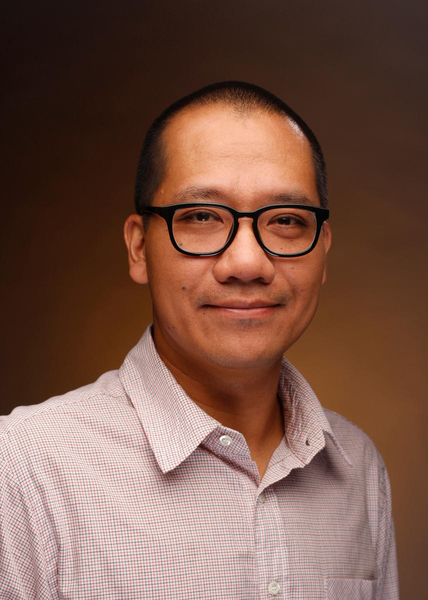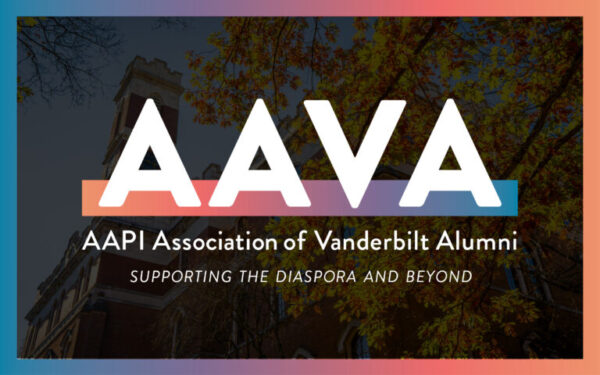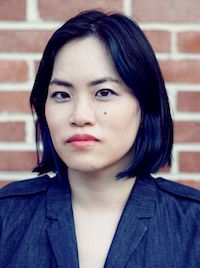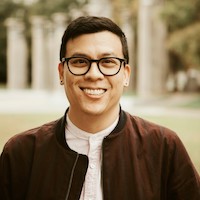March 16 marked the one-year anniversary of the day a 21-year-old man went on a shooting rampage at three spas in the Atlanta area, killing eight people—six of them women of Asian descent. The shootings stoked outrage and fear among Asian Americans, who were already experiencing discrimination, racism and hate crimes related to the COVID-19 pandemic.
The act of violence led to dialogue at Vanderbilt and college campuses across the country and resulted in calls, particularly from Asian American student groups, to create more inclusive spaces for AAPI populations.
- RELATED: Register to attend March 24 event: “From Vincent Chin to #StopAAPIHate: Helen Zia and 40+ Years of Asian American Activism” in observation of the first anniversary of the Atlanta shootings and the 40th anniversary of the killing of Chinese American Vincent Chin by white autoworkers. Hosted by Vanderbilt’s AAPI employee affinity group featuring author and activist Helen Zia, Mellon Assistant Professor of Asian American Studies Vivian Shaw, Associate Dean Laura Mariko Cheifetz of Vanderbilt Divinity School and Varsha Nair BS’22. 12:30–2 p.m. at The Commons Center.

Ben Tran (Vanderbilt Photo / Lauren Owens)
“At Vanderbilt we must be compelled to value our vibrant diversity and be even more committed to inclusion,” said Dr. André L. Churchwell, vice chancellor for equity, diversity and inclusion and chief diversity officer for Vanderbilt University. “We must ask questions like, ‘What does this moment feel like from different perspectives? What does equity and inclusion look like in such turbulent times? How can we learn from one another and ultimately come together to support one another with a spirit of critical inquiry and mutual respect?’”
A year later, many of the same questions still apply.
Ben Tran, an associate professor of Asian Studies and English at Vanderbilt, said the anniversary of the Atlanta shootings—and the 40th anniversary of another hate-inspired killing of an Asian American man named Vincent Chin—bring the chance for reflection about what has changed when it comes to anti-Asian bias and what still needs to change.
The Atlanta shootings were part of a complex picture, Tran said, that included election victories in Georgia by President Joe Biden and Sen. Raphael Warnock—both Democrats in a traditionally GOP-leaning state. Some of those frustrated by the outcome blamed ethnic minorities.
“And, on top of it … some were blaming Asian people for COVID-19,” he added. “That added fuel to the fire.”
Tran said events over the past year helped to solidify the groundwork of several initiatives designed to better support AAPI people at Vanderbilt, and the university has made strides in strengthening its recognition of AAPI communities.
“They spurred us to find each other,” said Laura Mariko Cheifetz, assistant dean of admissions, vocation and stewardship at Vanderbilt Divinity School about events organized by the Office for Equity, Diversity and Inclusion and the Asian American Pacific Islander Student Nurses affinity organization, among others. “Those of us who were starting to connect got more energized about needing to see each other. It was more, ‘we can’t just keep doing this alone.’ We need to see each other and build those relationships.”
Vanderbilt has undertaken a series of initiatives in the past year focused on Asian American and Pacific Islander (AAPI) communities with input from students, including the Asian American Student Association, faculty and staff:
- The institution unveiled the A3PI identity initiative, which was established to acknowledge, support and provide resources for the university’s Asian, Asian American and Pacific Islander communities. A3PI works to build community among members, educate people on the wide-ranging history and culture of the population, and advocate for issues relating to things A3PI people experience on campus.

- In January, Vanderbilt launched an alumni affinity group for Vanderbilt’s AAPI community, supporting the diaspora and beyond. The AAPI Association of Vanderbilt Alumni (AAVA) aims to connect alumni with one another and with current students and the broader Vanderbilt community.
- The university founded an AAPI employee affinity group, a space for individuals of Asian and Pacific Islander descent to gather to address and share issues and concerns that impact the group, such as racism, immigration, mental health and the like. Cheifetz co-chairs Vanderbilt’s AAPI employee affinity group with Justine Chen, director of communications for Vanderbilt Divinity School.

Vivian Shaw
- A new Asian American studies major and minor track is in the formative process in the College of Arts and Science. In fall 2021, Vivian Shaw, Mellon Assistant Professor of Asian American Studies, began teaching sociology and environmental studies courses on Asian America. Shaw is also Lead Researcher (co-PI) for the AAPI COVID-19 Project, a multi-method investigation into the impacts of the pandemic on the lives of Asian American, Native Hawaiian and Pacific Islander communities, in collaboration with the Department of Sociology at Harvard University and UNICEF’s International Coalition of Inclusive and Sustainable Cities. Mark Sanchez, a scholar of Asian American history, will begin teaching in fall 2022. In addition, the English department, in conjunction with Asian Studies, recently hired Huan He, who studies the racial associations linking Asian Americans and technology. He will teach Asian American literature and culture, starting in fall 2023.

Mark Sanchez
Student participation has been integral to selecting faculty for the Asian American studies program and to discussing course offerings that best meet the needs of diverse populations. Varsha Nair, a senior majoring in neuroscience and African American and diaspora studies, said she has welcomed helping Vanderbilt build a more inclusive campus environment.
“It has been incredibly validating and empowering to be included in the faculty search process,” she said. “It reflected for me that as a South Asian woman at the intersection of STEM and the humanities—who works very intimately with faculty members as a VUceptor—that my time and effort as a community leader and as a multicultural organizational student adviser is important and valued.
“I, as an Asian American member of my institution, am heard and seen,” Nair added. “The shift in my interaction with administration from a year/year-and-a-half ago on similar topics to this year has been startling, but in a good way. It makes me excited for the future and the academic enrichment that myself and my peers are deserving of.”
Shaw, Cheifetz and Nair are scheduled to be involved with the panel and event with Helen Zia on March 24. Learn more and register today.